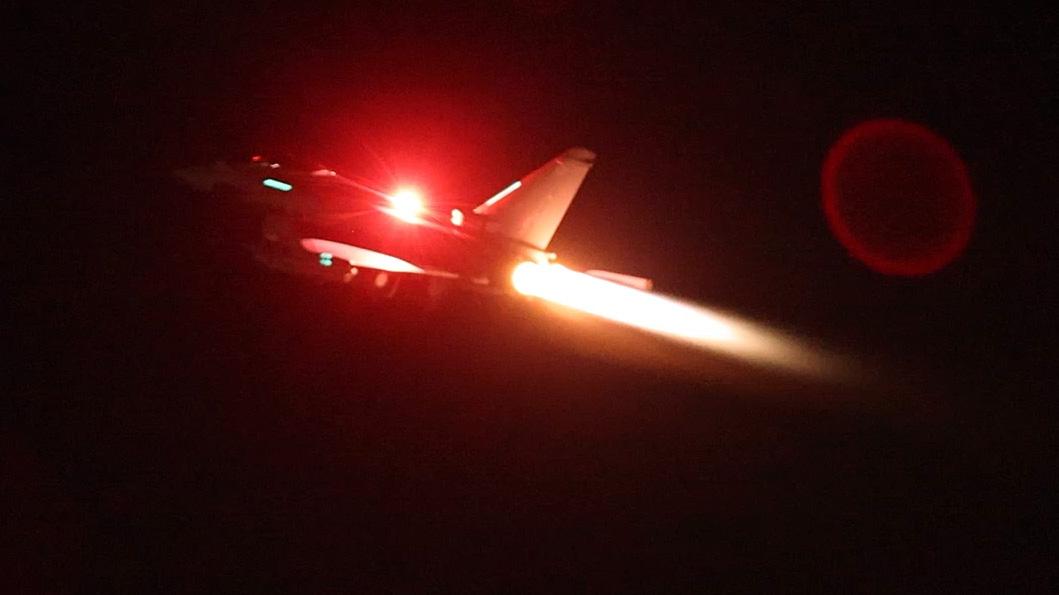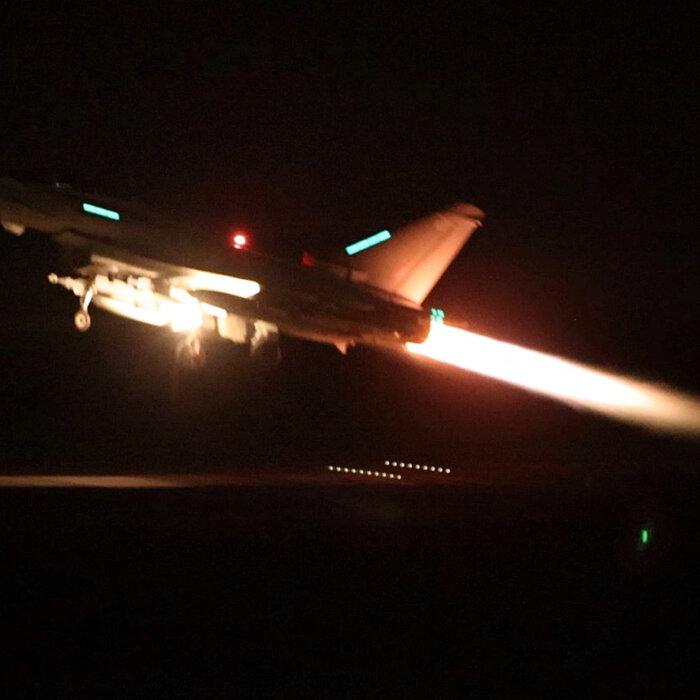Prime Minister Rishi Sunak said that Royal Air Force airstrikes against Houthi rebels in Yemen are “self-defence.”
On Thursday, The Royal Air Force launched targeted strikes against Houthi rebels in Yemen in light of “destabilising attacks” against commercial shipping in the Red Sea.
Global Shipping Route
Mr. Sunak held a full Cabinet call on Thursday evening in response to the disruption on the key global shipping route.Attacks on commercial vessels navigating the Red Sea are forcing ships to travel around Africa to transport goods to European and North American markets.
More than 20,000 ships navigate the Suez Canal annually, making it one of the world’s key maritime routes, especially for fossil fuels from the Middle East and goods moving between Asia and Europe.
The UK joined U.S. military forces, supported by Australia, Bahrain, Canada, and the Netherlands, to conduct strikes against a number of targets in Yemen.
“In recent months, the Houthi militia have carried out a series of dangerous and destabilising attacks against commercial shipping in the Red Sea, threatening UK and other international ships, causing major disruption to a vital trade route and driving up commodity prices,” said Mr. Sunak.
“Their reckless actions are risking lives at sea and exacerbating the humanitarian crisis in Yemen,” he said.
“Despite the repeated warnings from the international community, the Houthis have continued to carry out attacks in the Red Sea, including against UK and U.S. warships just this week. This cannot stand. The United Kingdom will always stand up for freedom of navigation and the free flow of trade,” he added.
Conduct Precision Strikes
The Ministry of Defence said alongside U.S. and French warships “the UK agreed to “conduct a carefully coordinated strike to reduce the Houthis’ capability to violate international law in this manner.”It said: “Four RAF Typhoon FGR4s, supported by a Voyager air refuelling tanker, therefore used Paveway IV guided bombs to conduct precision strikes on two of these Houthi facilities.”
Higher Risk of Conflict
Sophia Gaston, head of foreign policy at the think tank Policy Exchange, told the PA news agency that there is “certainly a risk of wider conflict in the region.”“The existence of so many nations with both direct national interests and also higher interests in pursuing different goals and outcomes necessarily makes this a kind of tinderbox. And I think there are a lot of these players who believe that the stakes at the moment are becoming existential.
“So I think that always is a recipe for a higher risk of conflict.”
Armed Forces Minister James Heappey said that no more strikes or military actions are planned for the moment.
Some MPs, including The Liberal Democrats Layla Moran have called for a retrospective vote on the military action in the Red Sea and called for MPs to be recalled to Parliament.
Mr. Heappey told BBC Breakfast that the government’s legal position “is sound, it’s based on self-defence.”







